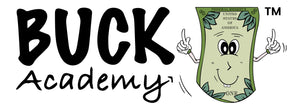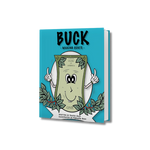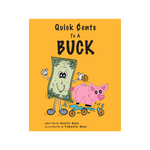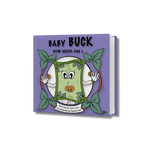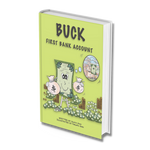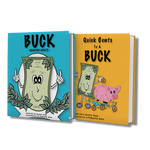You have no items in your shopping cart.
Many of you have heard of Dave Ramsey, he is an internationally known American radio show host, author, and successful businessman. With a man who holds a net worth of $200 million dollars, I would say that following his suggestions would be commendable. His sole approach is on changing your behavior for necessary life changes. In order for you to become successful with saving money, first, you need to make some lifestyle changes. Below are some tips from Ramsey on how you can begin to make these lifestyle changes.
Zero-Based Budgeting
Step 1, a written budget! The concrete foundation of any financial plan. This will be a layout of what you are able to afford, and what expenses you need to allocate to other sources. This will tell you how, when, where, and why you can and should spend your money.
Zero-based budgeting: Budgeting every individual dollar within your income.
While this seems like a lot of not only time, but work, the end result is uncontestable. It simply works. By truly breaking down your finances and turning this practice into a science, you gain the power of knowledge to where your money is being spent.
Lay out your finances into categorized spending, for example;
- Food/Groceries
- Pets/Care
- Children/Care
- Medical
- Fun/Entertainment
- Miscellaneous Purchases
Use Cash
In a society where cash and coin shortages are becoming commonplace, using cash actually saves many individuals an upwards of 20% on average. Spending cash forces us to think about what we are spending our money on.
Cash vs. card; how differently money is spent and the differences they make. When using cash, as you spend your money you see it start to deduct before your eyes. Say you start grocery shopping with a $100 shopping budget. As you begin to add items into your cart, you know that you only have $100 and no more to spend. With that, you begin to deduct items from your budget, and prioritize your purchases. Now, let’s use this same scenario with a credit or debit card. When no cash is involved, and you go shopping, your budget is what’s in your bank account. The numbers aren’t in front of you, so therefore you tend to not prioritize your spending, instead spending loosely. At checkout, instead of pulling out your cash budget, you reach for the plastic, make a simple swipe, and it’s taken care of. With this ease, comes consequences still, even if you cannot see it firsthand.
Take Care of Your ‘four-walls’
This is the part where you begin to prioritize your budget and spending via your household and livelihood. Ramsey states that the ‘four walls’ you should take care of are;
- Food/Groceries
- Shelter (Mortgage, rent, bills, land/property taxes, etc;)
- Transportation Costs (Car payments, insurance, bus/train fees, tolls)
- Clothing/Shoes
What this means is that these above expenses come out of your budget before anything else does. You prioritize your spending by allocating budgets for each of these categories of expenses. You must be able to pay your bills, mortgage, car payments, and support your living expenses before you begin to pay off any debt, or spend large amounts of money.
Live beneath your means
Or as Dave Ramsey says, ‘Live like no one else, so later you can live like no one else’. This is part of the sacrifice that comes along with creating and sticking to a budget. Essentially it means that you are called to make sacrifices of your current wants, in order to pay off debt to live a debt free, and truly financially stable life. This often is hard to accomplish for most families and individuals. The reason for this is because we are living in a world where everything is instantaneous. And if you aren’t up with the newest phones, trendiest clothing, or slickest whip, you aren’t “making it” in life. When in reality, it is those same individuals who are falling further and further behind and deeper into debt.
Utilize ‘sinking funds’
Many families and individuals haven’t heard of the term, ‘sinking fund’, and that’s perfectly okay, Buck is here to change that. The term ‘sinking fund’ by definition is; “A fund established by an economic entity by setting aside revenue over a period of time to fund a future capital expense, or repayment of a long-term debt”.
Now in simple terms, it means that you set aside money a bit at a time. Whether it is something like our 52 Week Money Challenge, or our newest, 12 Month Emergency Fund Challenge, it’s advisable to start making this a practice of your budgeting.
Pay off debt using snowball
By definition; “The Snowball Method is paying off debts starting with the smallest balance owed, versus the one with the highest amount or interest rate”. The reason why this is recommended is because you start to see your overall debt balance disappearing, and improving overall while not breaking the bank. Most individuals who use this approach see their debts significantly reduced, if not completely eliminated by 24 months on average.
Save at least $1,000 before paying off debt
This comes as part of the emergency fund plan. The ideal behind this method is that while you are saving for your emergency fund, you will be able to breathe with ease in the event that something comes up while you are working on paying off your past debts. However, if your income is at or below $26,000 annually, you can save an average of $500 instead of $1,000. Just know that in doing this, your ability to cover larger expenses are limited to that amount only.
Stop using debt and collecting it
As Ramsey often say’s, “Act your wage and stop spending like you are in Congress.” All in all, what this means is to live within your means. In a world where status quo is everything, and it’s a race to, in better terms, ‘Keep up with the Jones’” you really should begin to assess what, and how much you can truly afford, while still living comfortably. If you continuously live outside of your means, you will suffer long term in the form of financial stress, and a ton of debt. We aren’t trying to scare you, but we are. This is vital for your financial success and wellbeing. Not just for now, but for years to come for yourself, and your children. Unless absolutely necessary, avoid using credit cards, they are the easiest way to streamline you straight into debt.
Avoid buying new with automobiles
Looking for a way to pour your money down the drain? Buy a new car! The very moment you drive your shiny new automobile off the showroom floor or lot, that precious hunk of metal depreciates in value by a whopping 10% and 20% by the end of the first year of ownership. A new/used car is a great option for many families and individuals as it provides updated equipment and style, but at a much better price.
Save at least 15% for retirement
This step happens once you become debt-free, minus your home’s mortgage. Before you begin to save for retirement you should have your emergency fund full, a healthy savings account set aside, and little, to no debt. Dave Ramsey recommends saving an average of 15% of your gross income to place towards retirement.
Ready to buy a house? Start with a 15 year mortgage.
Who likes being in debt? We will wait… Exactly! Nobody wants to live in debt. With this, Dave Ramsey has recommended to set your mortgage to a 15 year term, that is not more than 25% of your household take home, with only 20% down. This also means that it’s far less likely that you will be underwater on the value of your home if you decide to sell your property in a lower market.
Change your ways
It’s important to keep in mind that this is a complete lifestyle change. Changing your lifestyle habits as in your mindset about situations, your job, or your true budget, if it’s a hindrance to your financial health, rework it. And while many families and individuals are often uncomfortable with change, we find that in life it’s often necessary to grow.
Put your money where it belongs
The ideology behind this method is that, if you don’t control your finances, they are going to control you. Have you ever gotten to the end of your week, checked your bank account, and you have $100 in your bank account when you thought you had $500? That’s what we will refer to as, houdini money. When you budget your money, and stick to that, you create a paper trail of where your money is supposed to go, vs where it is actually going. This method goes hand in hand with the ‘zero-based budget’ ideal.
Cut up the credit cards
Dave wants me to do what? You read that right, cut up the credit cards. Credit cards offer a false sense of security for their owners. When you are out of money in your bank account, you know that you have your credit card ready to use, and at your disposal. But how is that healthy to your overall financial health? You begin to spend money you don’t have in the first place, all while not making money to take care of the debts you are incurring as well as your basic living expenses. If you don’t feel comfortable doing this, lock them up in a safe spot and only use them in a dire emergency.
When in debt, head to work!
Seemingly simple suggestion right? You work to earn money, to pay off debt. If you find that your current job isn’t covering your expenses, many people will look for a secondary source of income to alleviate the stress of debt. Picking up odd jobs such as babysitting, dog walking, delivering pizza/food, or waitressing can all be extremely helpful in paying off debts.
Are we having a yard sale?
You surely could be. The ideal behind this is to minimize your clutter, while making extra cash. This proves to be a win-win for everyone. Have a yard sale, estate sale, and declutter your home. All of your extra’s can really help bring in extra cash. Thanks to technology, we have places like Facebook Marketplace, Etsy, Craigslist, and other online websites (even apps) to sell our old stuff on!
Give.
One point Dave Ramsey puts a lot of pressure on is the ability to give to others. Small amounts of money can make a big difference in somebody’s life. Now imagine what you could do with little to no debt hanging over your wallet, how many people you could help. Within your community, worldwide, wherever you choose!
Summing it up
Dave Ramsey has laid out a pretty good foundation to start on, with his advice you will be able to start managing your finances in a healthier nature. Along with being a successful businessman, Ramsey has helped millions of people to date, with living the lives they only dreamed of.
Daves set of financial principles are:
- Putting your money where it needs to go
- Live within your means
- Emergency funds
- Invest in yourself, and your future &
- Give to others.
We wish you luck on your new financial journey!
